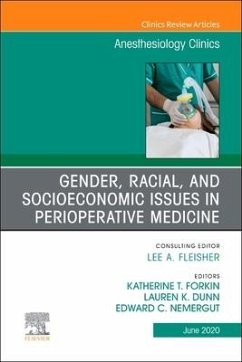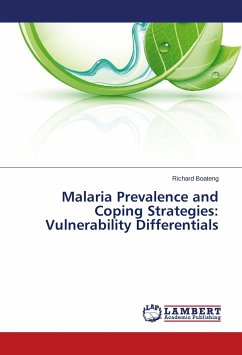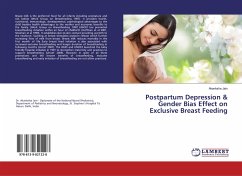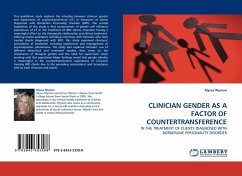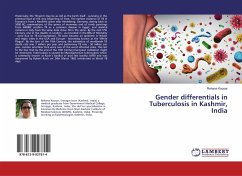
Gender differentials in Tuberculosis in Kashmir, India
Versandkostenfrei!
Versandfertig in 6-10 Tagen
36,99 €
inkl. MwSt.

PAYBACK Punkte
18 °P sammeln!
Historically, the TB germ may be as old as the Earth itself - surviving in the primeval mud at the very beginning of time. The earliest evidence of TB in humans is from a Neolithic grave near Heidelberg, Germany, dating back to 5000 BC; examinations of the spines of mummies and of tomb paintings from 4000BC confirm TB as a common disease in Egypt, and skeletal remains in Italy from the same date show TB in the spine. By the mid-17th Century, one in five deaths in London - as recorded in the Bills of Mortality - were due to TB (consumption). TB soon became an epidemic in Britain and major citie...
Historically, the TB germ may be as old as the Earth itself - surviving in the primeval mud at the very beginning of time. The earliest evidence of TB in humans is from a Neolithic grave near Heidelberg, Germany, dating back to 5000 BC; examinations of the spines of mummies and of tomb paintings from 4000BC confirm TB as a common disease in Egypt, and skeletal remains in Italy from the same date show TB in the spine. By the mid-17th Century, one in five deaths in London - as recorded in the Bills of Mortality - were due to TB (consumption). TB soon became an epidemic in Britain and major cities in the USA and Europe - becoming known as the "White Plague". By the turn of the 19th Century, the estimation of worldwide TB death rate was 7 million per year and pulmonary TB rate - 50 million per year. London and New York were two of the worst affected cities. This led to the fear that by the end of the 19th Century European civilisation might be destroyed. Tuberculosis is caused by Mycobacterium tuberculosis which is commonly known as Koch's bacillus or acid fast bacillus (AFB) and was discovered by Robert Koch on 24th March 1882 (celebrated as World TB day).




